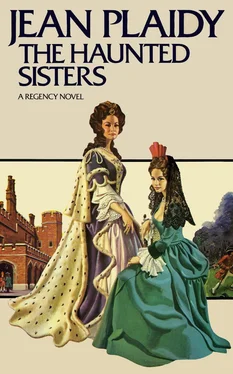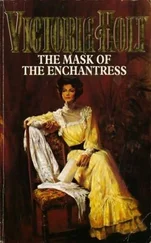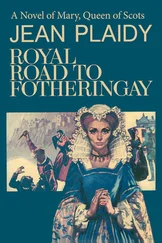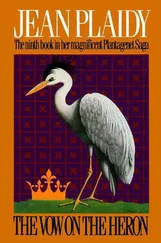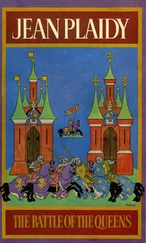Виктория Холт - Royal Sisters - The Story of the Daughters of James II
Здесь есть возможность читать онлайн «Виктория Холт - Royal Sisters - The Story of the Daughters of James II» весь текст электронной книги совершенно бесплатно (целиком полную версию без сокращений). В некоторых случаях можно слушать аудио, скачать через торрент в формате fb2 и присутствует краткое содержание. Жанр: Исторические любовные романы, на английском языке. Описание произведения, (предисловие) а так же отзывы посетителей доступны на портале библиотеки ЛибКат.
- Название:Royal Sisters: The Story of the Daughters of James II
- Автор:
- Жанр:
- Год:неизвестен
- ISBN:нет данных
- Рейтинг книги:3 / 5. Голосов: 1
-
Избранное:Добавить в избранное
- Отзывы:
-
Ваша оценка:
- 60
- 1
- 2
- 3
- 4
- 5
Royal Sisters: The Story of the Daughters of James II: краткое содержание, описание и аннотация
Предлагаем к чтению аннотацию, описание, краткое содержание или предисловие (зависит от того, что написал сам автор книги «Royal Sisters: The Story of the Daughters of James II»). Если вы не нашли необходимую информацию о книге — напишите в комментариях, мы постараемся отыскать её.
Royal Sisters: The Story of the Daughters of James II — читать онлайн бесплатно полную книгу (весь текст) целиком
Ниже представлен текст книги, разбитый по страницам. Система сохранения места последней прочитанной страницы, позволяет с удобством читать онлайн бесплатно книгу «Royal Sisters: The Story of the Daughters of James II», без необходимости каждый раз заново искать на чём Вы остановились. Поставьте закладку, и сможете в любой момент перейти на страницу, на которой закончили чтение.
Интервал:
Закладка:
When William discovered this he discussed it angrily with the Queen, and Mary went to see her sister to reproach her with her duplicity.
“And I thought that we had become good friends again,” complained Mary.
“So did I,” replied Anne.
“And all the time you were going behind our backs … trying to get more money. Don’t you realize how generously you have been treated?”
“There is my son now …” pointed out Anne.
“Anne, there is a war in Ireland which is draining our resources.”
Anne wiped a tear from her eyes. “A war against our own father,” she said.
“This is not the time to go into all that. You must be sensible. We are all together on one side.…”
Anne knew vaguely that that was just what Sarah did not want. Anne was not on their side; neither was she on her father’s; she was somewhere in between—ready to jump either way, depending on what happened.
“I think I should have the money,” she said.
“You are … stupid!” cried Mary.
And she left her.
Sarah who had been listening came into the room.
“Congratulations, Mrs. Morley. You dealt admirably with Mrs. Dutch Abortion.”
“Oh, Sarah, you’ll be the death of me. What a name for her.”
“I do not think we should stay here at Hampton Court,” went on Sarah. “The Duke of Gloucester, as heir to the throne, should have his own establishment. I was speaking to Lord Craven and he would be delighted to lend his house at Kensington Gravel Pits. It would make an excellent nursery for the Prince because it is a very fine house.”
“I must see Lord Craven at once.”
“I fancy Mrs. D-A will not be very pleased to have her little darling taken from her, but people who will not oblige us cannot expect to be obliged.”
Very shortly afterward the little Duke of Gloucester was set up in his nursery at Kensington Gravel Pits.
While Mary had been worrying about the health of her little nephew and rejoicing at Mrs. Pack’s success with him it had been becoming obvious that the conflict between the reigning sovereign and the Jacobites was not going to be easily settled.
The Battle of Bantry Bay had been fought against the French who were supporting the Jacobites and the result had been defeat for the British fleet.
Clarendon had come to William and Mary and begged to be allowed to go to Ireland where he believed he could be of service to them, but Anne had so poisoned her sister’s mind against their uncle in her letters that both William and Mary failed to see that the very fact that he had supported James pointed to his loyalty, and regarded him with suspicion.
Clarendon’s great desire was to save the Protestant community in Ireland who were in danger of elimination, and much as he disliked William, much as he abhorred the manner in which he—and he blamed him rather than his niece Mary—had treated James, he believed that this was not the time for partisanship. Peace in Ireland was necessary and he was sure that he, as a former Lord Lieutenant, could persuade the present Lord Lieutenant, Lord Tyrconnel, to declare for William.
But William and Mary turned their backs on him and looked about for some other ambassador whom they could trust. They favored Count Hamilton and when John Temple—son of Sir William—who had been made Secretary of War, recommended that Hamilton should be sent to Ireland, he was given the commission instead of Clarendon.
Hamilton was the brother of Frances Jennings’s first husband, and Tyrconnel was now that lady’s husband; so that the relationship should, it seemed, prove helpful.
The result however turned out to be disastrous, for Hamilton persuaded Tyrconnel to stand firm for James. They had sent the wrong man, but it was too late to alter that now.
The situation in Ireland was worsening; John Temple, having made such an error of judgment in advising the sending of Hamilton, filled his pockets with stones and jumped into the Thames near London Bridge. There was great public interest when his body was found and the reason known.
“We have nothing but ill luck,” said the people. “This is the curse of a father on his ungrateful daughter.”
“There is only one thing to be done,” said William. “I myself must go to Ireland.”
The little Duke of Gloucester, although frail, continued to survive. Crowds collected to see him taken out each day in his tiny carriage which had been made especially for him. Four of the smallest horses ever seen had been chosen to draw it; and Prince George’s coachman held the reins and drew it along. There were cheers as the baby with his little retinue passed by; and no matter how cold the weather he always went out. Mrs. Pack had brought her children up to face all weathers, so little Gloucester must do the same.
No matter what criticism was thrown at the King and Queen, and even the Princess Anne, royal babies were always assured of public acclaim; and this little one who had survived when so many of his brothers and sisters had failed to get a grasp on life was regarded as something of a phenomenon.
He was a good baby, rather solemn but very interested in everything and at an early age his eyes would light up at the sight of soldiers.
The Queen sent eager inquiries as to his health and there were presents too. Even William was interested in his progress. As for George and Anne they could think of nothing else; and Anne deserted even Sarah that she might be with the baby and marvel at his intelligence.
It was all most irritating to Sarah, and as Marlborough was away she could confide her rage to no one.
This, she thought, is the biggest trial of patience I was ever called upon to endure.
But it would not last. Soon the arrogant Pack would be told to do what her name implied and get out of Court. When she was no use she would soon be forgotten, and Sarah would come into her kingdom once more, ruler supreme of the Princess Anne’s household.
Mary was desolate. The thought of William’s going away terrified her. She was obsessed by the fear that her father and husband would meet and that one would kill the other.
He talked to her of his plans as they walked about the gardens of Hampton Court. He had bought the Earl of Nottingham’s house in Kensington and planned to build a palace there. It seemed astonishing to some that while he was so anxiously thinking of the war he must carry on in Ireland he could at the same time be planning Kensington Palace, but Mary understood that building was his hobby and relaxation and while in his mind he planned the apartments of Kensington Palace and the gardens he would have, he was giving his mind that rest which it needed if he were to succeed in the difficult tasks which lay ahead.
While he was away, the government of the country would be in her hands, he reminded her grimly.
“Oh, William, how can I govern without you?”
“It is something you will have to learn. If you have doubts of yourself the people have none. They have shown clearly that they prefer you to me.”
“Only because of their ignorance, dear William. Oh, this is a great tragedy. To be left here alone … unable to ask your help!”
“You are a Queen and must perforce shoulder your burdens.”
“If you could but stay at home …”
“I have stayed too long. Think of Bantry Bay. Of Hamilton and Tyrconnel. Who knows what next.”
She thought sadly of the days ahead when she would not have him beside her. Those who saw them smiled at the picture they made. She so large; he so small; and they quoted the lines which had caused so much amusement throughout the country.
Man and wife are all in one, in flesh and in bone ,
Читать дальшеИнтервал:
Закладка:
Похожие книги на «Royal Sisters: The Story of the Daughters of James II»
Представляем Вашему вниманию похожие книги на «Royal Sisters: The Story of the Daughters of James II» списком для выбора. Мы отобрали схожую по названию и смыслу литературу в надежде предоставить читателям больше вариантов отыскать новые, интересные, ещё непрочитанные произведения.
Обсуждение, отзывы о книге «Royal Sisters: The Story of the Daughters of James II» и просто собственные мнения читателей. Оставьте ваши комментарии, напишите, что Вы думаете о произведении, его смысле или главных героях. Укажите что конкретно понравилось, а что нет, и почему Вы так считаете.
